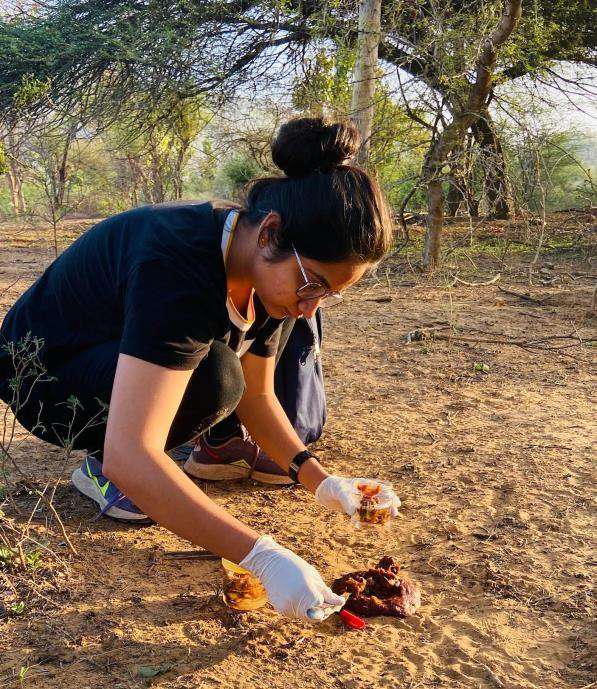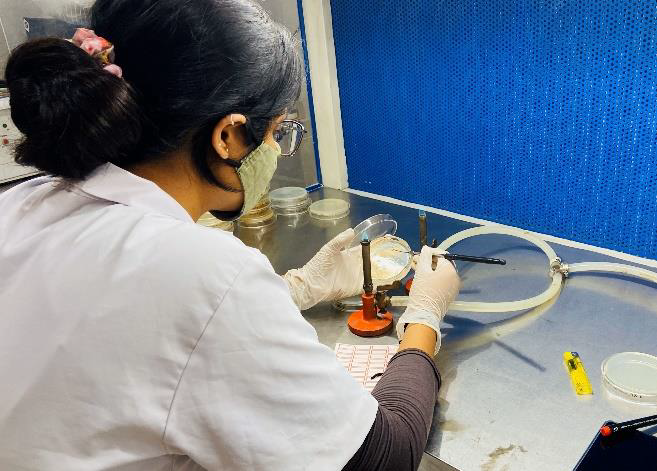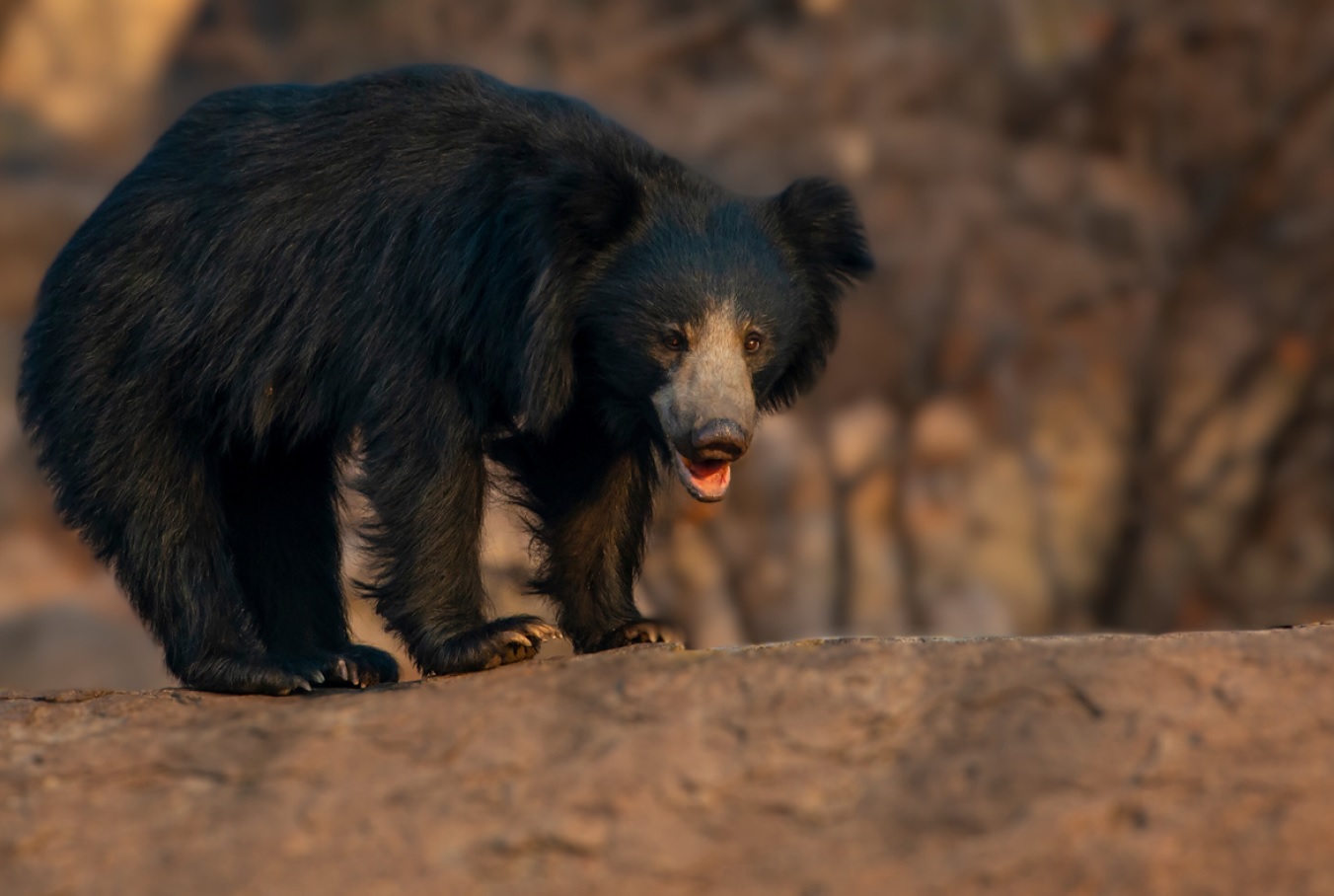Gut microbial diversity of Asian bears is poorly studied; most studies have been conducted on brown bears and other European and American bear species. The goal of this research project by the Wildlife and Conservation Biology (WCB) Research lab is to study the gut microbial diversity of wild and captive Sloth bears in order to understand and compare microbial diversity.
The scat samples of wild sloth bears will be collected from Jessore wildlife sanctuary, in Gujarat state, which is known for the high density of Sloth bears in India. The samples of captive sloth bears will be collected from various zoos and bear rescue facilities in India. Fresh scats will be collected in a sterile bottle containing normal saline solution, and the microbial isolation will be carried out by conventional microbiological methods. Further identification will be done using Vitek-2 compact, an automated rapid identification system used for microbial identification. Genotypic analysis will be performed using 16s rRNA analysis by Sanger sequencing, followed by data analysis using BLASTN.


Microbiome biology is currently a relatively unexplored subject in conservation biology, but it has immense promise for understanding the effects of habitat degradation and nutrient availability. The findings will help to the zoos worldwide where the Sloth bears are kept and the State Forest Department to understand the health status of wild Sloth bears and their seasonal nutritional requirements.


